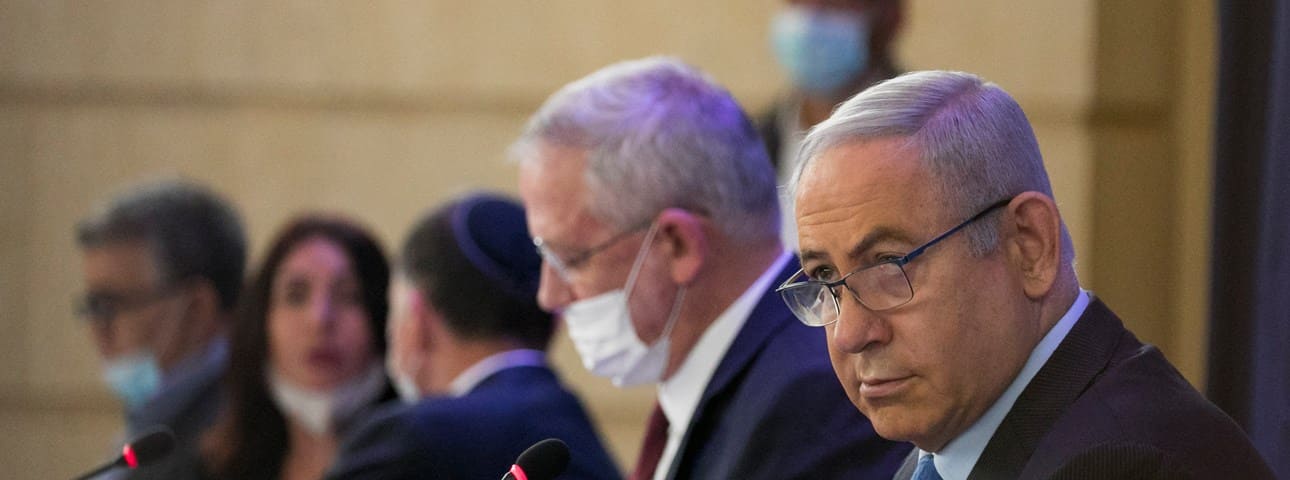Majority Think 2nd Lockdown was Politically Motivated
55 percent of Israelis believe that the second lockdown was solely or mainly politically motivated; The majority of the public continues to express confidence in Prof. Gamzu; Continued increase in public concern about the economy

Flash 90
A new survey by the Guttman Center for Public Opinion and Policy Research at the Israel Democracy Institute examined the public attitudes towards government policies relating to the coronavirus outbreak and to the economic fallout from the pandemic.
The survey, the thirteenth in this special series, finds that only 31% of Israelis trust Prime Minister Benjamin Netanyahu to lead the country's effort against COVID-19. This is somewhat higher that the 27% who expressed trust in Netanyahu last month, but is significantly lower than the 57.5% of the population who reported trusting him during the first lockdown in the beginning of April. Over half (55%) the public believes that political considerations were behind the country's second nation-wide lockdown, while only 39% believes that health considerations guided Israel's decision-makers in taking this unprecedented step.
As opposed to the low levels of support for Prime Minister Netanyahu, 61% of the public express their faith in the efforts of Professor Ronni Gamzu, Israel's national COVID-19 coordinator and 45% trust MK Yifat Shasha-Biton, Knesset coronavirus committee chairwoman.
Survey Highlights
Motivation behind the lockdown – 55% of Israelis believe that the motivation behind the holiday lockdown was political – including 50% of those who voted for United Torah Judaism – a central player in the coalition. Among those supporting opposition parties, the percentage of those who believe the decision was politically motivated has risen significantly.
Considerations behind the decision on the holiday lockdown (%, total sample)
Considerations behind the decision on the holiday lockdown were mostly or only political (%, by vote in the last election)
Fear for the future – Economic anxiety has continued to rise, with 63% of Israelis now fearing for their economic future, as opposed to 61% in September and 56.5% in August. Underlying this finding is the significant increase among Arab Israelis, among whom 80% - expressed their concern, up from 71% a month ago. Among Jewish Israelis, this month's results were similar to September's (60% and 59%, respectively).
Fear for their economic future (%, Jews, Arabs)
Trust in leadership and experts – Trust in Prime Minister Netanyahu’s management of the coronavirus crisis continues to be low – 31%.
Trust Prime Minister Netanyahu in leading the effort against the Corona crisis (%, total sample)
In this survey as in the previous one, most Israelis (61%) continue to trust Prof. Ronni Gamzu, the national coronavirus project coordinator. Among Jewish Israelis, 65% have confidence in Gamzu, compared to 41% among Arab Israelis. Members of the ultra-Orthodox community continue to rank his functioning as low, with only 25% reporting that they trust his efforts.
Trust Prof. Gamzu to lead the effort against the coronavirus (by location on Haredi-secular spectrum, Jews, %)
Grading the police – how did Israelis grade the police during the lockdown – 33% rated the functioning of the police as low (1+2), 32.5% a medium score (3) and 31% a high score (4+5).
During the last lockdown - did the ultra-Orthodox adhere to or violate the regulations?
A large majority of Arab Israelis (69%) and a majority among the rest of the Jewish public (53%) claim that the majority of the ultra-Orthodox violated the regulations of the last lockdown. On the other hand, only 1% of those who define themselves as ultra-Orthodox think that most of their community violated lockdown regulations.
Ratio of the ultra-Orthodox who violated the regulations of the last lockdown (%, General public by population group)
The survey Israel in the Time of Coronavirus 13 is a project of the Guttman Center for Public Opinion and Policy Research of the Israel Democracy Institute. In the survey, which was conducted on the internet and by telephone (to supplement groups that are not sufficiently represented on the network) from 12 to 14 October 2020, 607 men and women were interviewed in Hebrew and 151 in Arabic, constituting a representative national sample of the entire adult population of Israel aged 18 and older. The maximum sampling error for the entire sample was 3.7%± at a confidence level of 95%. The fieldwork was done by the Rafi Smith Institute under the direction of Rafi Smith. For the full data file see: Data Israel.
